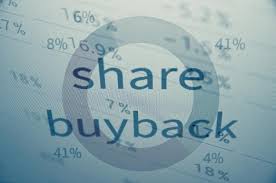There is an intense debate going around on the effectiveness of #Share Buy-back in shoring up Shareholder value. Indian Capital Markets have witnessed an amount of almost INR 75000 Crore under share buy back in the last one year – an amount now nearing the IPO sale in the same period. Such massive return of money to Equity investors is bound to create a big debate on it’s effectiveness.
Warren Buffet had a piece of advise for such promoters. Attempt Share buy back only when… a) there is enough cash flow to support PLUS… b) when the quoted price is below the intrinsic value of the share. Both conditions necessary. Otherwise, such announcements of Buy-Back are only telling the world that opportunities for the company are diminishing and future therefore seems heading south. This usually results into rerating of the PE multiples. Such lowering of PE thereby defeats the purpose of shareholder value – Fair point.
However, what if the company genuinely has cash on the Balance Sheet and wishes to return the money. Will it be prudent to declare hefty dividends and not share buy back?
I guess that would be a wrong step. Paying Dividend involves paying DDT (Tax) and in few cases certain set of investors might land up paying tax if they cross a threshold limit of Dividend in their books. This would be more damaging. Also paying heavy dividends involves maintaining the same pay-outs in future years which might not be possible.
Instead – resorting to buy back has no Tax outgo in the hands of company. Dividend payout ratios on lesser capital can be increased which might be taken very nicely by the markets. So the argument of lower PE multiple in future years might be flawed. Also in most cases – such extra Cash is usually parked in debt instruments generating minimum ROI and such abysmal low returns are a drag on the overall ROCE – a good reason for extending better PE multiple to the stock.
So in a way – if the company has extra cash, it is far prudent to resort to share Buy-back instead of Hefty Dividends.

Recent Comments